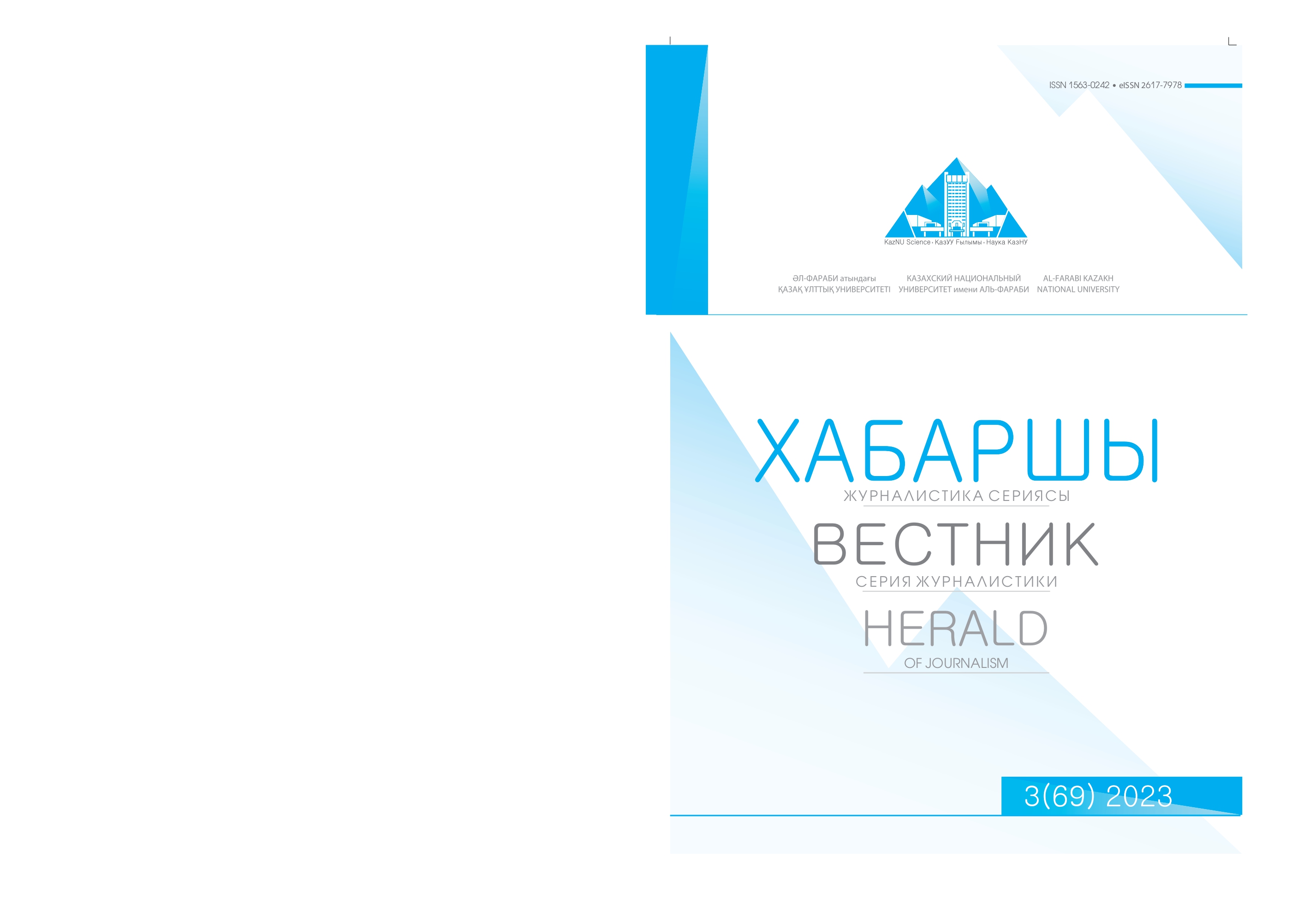The concept of soft power in global information and image policy: in the context of challenges
DOI:
https://doi.org/10.26577/HJ.2023.v69.i3.04Abstract
Currently, competition between states is taking place at a high level. According to this, states are using soft power policy to be ahead of each other, to increase their popularity and influence. And it has been very effective to implement all spheres of soft power according to one's own interests and spread its image through the flow of information. Accordingly, the purpose of the research work is to analyze the positive and negative aspects, consequences and possibilities of the level of soft power use on the eve of the information and image policy, based on the works and researches of scientists.
In order to maintain and further develop its reputation around the world, the main priority of the states is its accurate delivery without any distortion in the era of information spreading as fast as the speed of light. The fight against this problem is based on the fact that any state government should always take measures to prevent and prevent disinformation. Because more than half of the world's population has access to the Internet, it is clear that they are faced with something that causes misunderstandings and even disputes. And this, in turn, leads to a decrease in the state's image and reputation. In addition, it is important for an informed audience from every corner of the world that individuals, groups and organizations promoting the state or its soft power are also careful in their every action.
That is why, as research methods of the article, systematic and comparative analysis of the current issue between states, methods of general scientific approach were used by revealing the theoretical significance of the concepts of soft power and information-image policy of scientists.
The author asserts that the place of information policy in the formation of the state's reputation of soft power, and its effect is evaluated in terms of the sources of information distribution: social networks, traditional mass media, websites on the Internet or any online platforms. insists that it should be passed. The results of the research are also based on these analyses.
Key words: information policy, image policy, soft power, world information, criticism, Internet, media technologies
References
Brand Finance: Global Soft Power index. URL: https://brandirectory.com/softpower/
Fan Y. (2008) Soft Power: Power of Attraction or Confusion? Place Branding and Public Diplomacy, № 4, p. 147–158.
Gallarotti G. (2011) Soft Power: What It Is, Why It’s Important, and the Conditions under Which It Can Be Effectively Used. Journal of Political Power, Vol. 4, Is. 1, p. 25–47.
Giddens A. (1991) Modernity and Self- Identity. Self and Society in the Late Modern Age. Cambridge: Polity Press, pp. 84-85.
Luman N.L. (2004) Qoğam älewmettik jüie retinde. [Nemis tilenen audargan. A.Antonovskïy]. «Logos» baspası.
Melissen J. (2005) Innovation in Diplomatic Practice.
Nye J. (2004) The Means to Success in World Politics. New York: Public Affair.
Nye J. The future of power. New York, Public affairs.
Panarin I.N. (2006) Informatsionnaya voina, PR i mirovaya politika [Information warfare, PR and World Politics]. In: Goryachaya liniya [Hotline]. Moscow: Telekom Publ.
Schultz G. (1997) Diplomacy in the Information Age. [Keynote Addresses from the Virtual Diplomacy Conference]. United States Institute of Peace.
Suvorova I.S. (2016) Informatsionno-imidzhevaya politika gosudarstva v mirovom politicheskom prostranstve: klyuchevyye ponyatiya i osnovnyye polozheniya. Teorii i oshibki issledovaniy, Tom 5, № 6A, c. 96-106.
Troyan I.V. (2016) «Myagkaya sila» Kitaya: Kul'turnaya Ekspansiya «Krasnogo Drakona». Fomicheva I.D. (2011) Smi sredi sredstv sotsial'noy kommunikatsii.
We are social: The changing world of digital in 2023. URL: https://wearesocial.com/uk/blog/2023/01/the-changing-world-of-digital-in-2023/
Zhang C., Meadow C.W. (2012) International coverage, foreign policy, and national image: Exploring the complexities of media coverage, public opinion, and presidential agenda. International Journal of Communication, 6(1).













